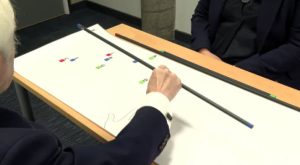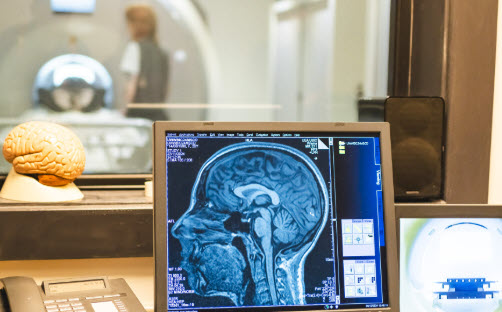The largest study of a spatial inattention therapy to take place anywhere in the world is underway at the University of East Anglia and taking place at eight major stroke centres across England.
There are 1.3 million stroke survivors in the UK, with an estimated 390,000 of those suffering from spatial inattention. The condition can be highly persistent, with 40% of stroke survivors continuing to experience symptoms a year post-stroke.
Currently there is no effective treatment for spatial inattention. This new trial is helping to fill the gap in the urgent search for successful treatments.
A stroke is caused by blood supply being cut off to part of the brain, killing brain cells. This can affect the brain’s ability to interpret information. In some cases, this can make the stroke survivor lose attention to things on one side of their body. This means that even if they have good eyesight, their brain does not process the information it’s getting from the impaired side, resulting in a disabling cognitive condition called ‘spatial inattention’ or ‘spatial neglect’.

SIGHT (Spatial Inattention Grasping Therapy) requires those suffering from spatial neglect to grasp and balance rods with their less affected hand. Because of the condition, the rods tilt during the first attempts, but feeling and seeing the rod tilt improves performance, which in turn increases attention to the impaired side.
The study will also explore why some people benefit more from therapy than others. To help identify who might benefit most, the trial will measure grasping, vision, cognition, stroke severity and brain structure and function.
There is currently no effective treatment for spatial inattention and people affected by it often have poor recovery and long-term disability. However this new therapy, SIGHT, has already shown some early promise in improving the condition. This low-cost, portable therapy, if found to be effective at improving inattention, could benefit millions of people around the world.



